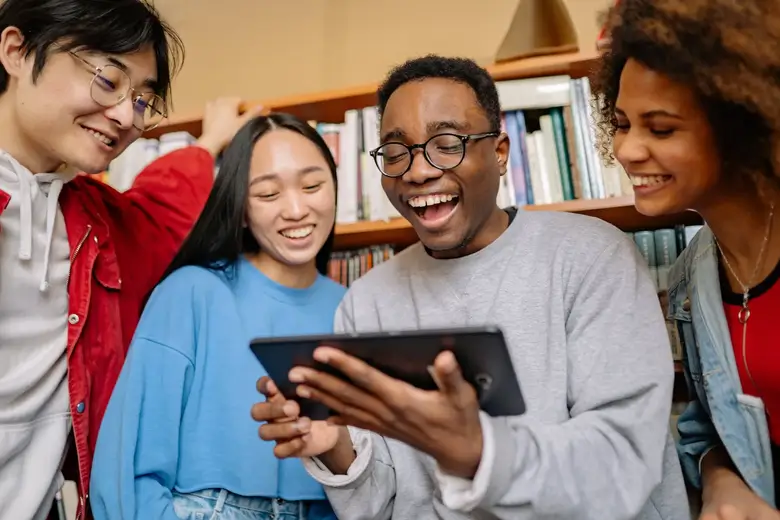
Securing glowing testimonials can make all the difference in your applications, whether for college, scholarships, or jobs. As someone who fumbled through my first requests only to learn the hard way, I know the anxiety of approaching mentors for support. This guide draws from real experiences and proven strategies to help you navigate the process with confidence and courtesy.
Why Recommendation Letters Matter in Your Journey
These documents offer a third-party perspective on your character, skills, and potential, going beyond grades and test scores. They humanize your application, showcasing traits like resilience or leadership through specific anecdotes. In my early college applications, a well-crafted letter from a history teacher highlighted my debate skills, tipping the scales in my favor.
Admissions committees or employers use them to gauge fit within their community. A strong endorsement can differentiate you from similar candidates. Understanding their weight motivates thoughtful preparation.
Recent trends show colleges valuing holistic views, making these letters crucial. They reveal how you interact in real settings. Treat them as key components of your narrative.
Without them, applications feel incomplete. Invest time in securing quality ones. This sets the stage for success.
Selecting Ideal Recommenders Who Know You Well
Choose individuals who’ve seen your growth and contributions firsthand. Teachers from core subjects or those you’ve engaged deeply with are prime candidates. My math professor, who witnessed my project turnaround, provided insightful details no one else could.
Counselors offer broader overviews of your school involvement. Avoid picking based solely on popularity; relevance matters more. Ensure they’ve interacted with you recently for fresh examples.
Diversity in perspectives strengthens your case. One academic, one extracurricular mentor balances the picture. Research requirements, as some programs specify types.
Ask yourself if they’d write positively. If unsure, test the waters casually. This prevents lukewarm submissions that harm more than help.
Guidance from experts suggests aligning with your goals. For STEM fields, science teachers shine. Tailor choices strategically.
Evaluating Potential Recommenders
Reflect on classes where you excelled or overcame challenges. Those stories make compelling content. I regretted not asking a coach who saw my teamwork daily.
Consider their writing ability and enthusiasm. Busy but supportive figures often deliver best. Prioritize quality over quantity.
Have backups in mind. If one declines, pivot smoothly. This keeps momentum going.
Timing Your Approach for Optimal Results
Request early, ideally months before deadlines, to give ample preparation time. Rushing leads to generic letters lacking depth. In my junior year, asking in September for November apps allowed thoughtful drafts.
Aim for at least four weeks’ notice, more during peak seasons. Teachers handle multiple requests; respect their load. Check school policies on timelines.
Avoid end-of-year chaos or right after breaks. Mid-semester, when memories are fresh, works best. Plan around holidays too.
Current advice emphasizes advance notice for quality. It shows organization, impressing recommenders. Early birds get detailed endorsements.
If deadlines shift, communicate promptly. Flexibility builds goodwill. Timing reflects your professionalism.
Handling Last-Minute Needs
Emergencies happen, but explain circumstances apologetically. Offer extra support materials. I’ve salvaged situations this way, though it’s riskier.
Build relationships year-round to ease urgent asks. Prevention trumps cure. Learn from delays to improve future planning.
Approaching Teachers and Counselors Effectively
Start with a personal conversation to gauge interest. Schedule a meeting or catch them during office hours. My first ask was nerve-wracking, but a sincere chat eased tensions.
Be direct yet polite, explaining why you value their perspective. Give them an out if they’re uncomfortable. This respects their autonomy.
If in-person isn’t feasible, email thoughtfully with details. Follow up personally if possible. Virtual tools have made this adaptable.
Insights from forums stress positive framing. Mention specific interactions to jog memory. It personalizes the request.
Prepare a script if anxious. Practice builds confidence. Remember, most are flattered and willing.
In-Person Versus Digital Requests
Face-to-face conveys seriousness and allows immediate questions. Body language helps read responses. I preferred this for building rapport.
Email suits busy schedules or remote situations. Include attachments like forms. Hybrid approaches work too.
Choose based on your relationship. Strong bonds favor personal; formal ones, written. Adapt to their preferences.
Scripting Your Conversation
Open with appreciation for their guidance. State your purpose clearly. End with next steps.
Example: “I’ve appreciated your class and think your insights would strengthen my application.” Listen actively. This fosters positive exchanges.
Preparing Materials to Support Your Recommender
Provide a resume highlighting achievements, activities, and goals. It refreshes their memory on your accomplishments. My resume included volunteer work, prompting a teacher to recall my leadership.
A brag sheet details specific examples or traits to emphasize. Include grades, projects, and aspirations. This guides without dictating.
Talking points suggest key areas like problem-solving or creativity. Tailor to the application’s focus. Experts recommend this for targeted letters.
Organize neatly, perhaps in a folder. Digital versions via email or shared drives are convenient. Update as needed.
Include deadlines and submission instructions. This streamlines their process. Thoughtful prep shows respect.
Crafting a Brag Sheet
List academics, extracurriculars, and personal growth. Use bullets for readability. I added anecdotes, enriching the letter.
Avoid exaggeration; authenticity shines. Seek feedback on drafts. This tool empowers recommenders.
Resume Essentials for Recommendations
Keep it concise, one page. Focus on relevant experiences. Format professionally.
Highlight transferable skills. For college, emphasize growth. It complements your application.
Guiding Content Without Overstepping
Suggest themes based on your strengths, but let them decide details. Provide context on the opportunity. My suggestions led to a letter emphasizing my research passion.
Share essay drafts if relevant, showing your voice. This ensures cohesion. Balance guidance with trust.
Discuss what to include, like challenges overcome. Honest input yields genuine endorsements. Advice warns against scripting.
If they ask for points, prepare thoughtfully. Relate to their observations. Collaboration enhances quality.
Respect their expertise. Their unique view adds value. Guide subtly for best results.
Addressing Specific Requests
If they want examples, provide promptly. Tie to shared experiences. This refreshes specifics.
Avoid demanding; suggest. Positive framing encourages. It strengthens the partnership.
Following Up and Showing Appreciation
Send reminders gently as deadlines near. Thank them regardless of outcome. A handwritten note after submission touched my recommenders.
Update on application results. It closes the loop graciously. Maintain relationships for future needs.
Offer to reciprocate if appropriate. Gratitude builds networks. Timely follow-ups ensure completion.
Platforms track submissions, easing checks. Use them to monitor without nagging. Politeness preserves goodwill.
If issues arise, address calmly. Persistence with courtesy wins. This phase cements positive impressions.
Thank-You Strategies
Personalize notes with specific thanks. Gifts like coffee cards are thoughtful. I sent updates years later, strengthening bonds.
Public acknowledgments if suitable. Sincerity matters most. It encourages future support.
Navigating Submission: Separate or Together?
Most modern processes are digital, with recommenders uploading directly via portals. No envelopes needed; it’s efficient and secure. For my applications, teachers submitted through Common App independently.
Students rarely handle letters; confidentiality is key. Combine requests in one system if possible, but each letter is separate. Check institution guidelines.
For multiple schools, recommenders can reuse with tweaks. Portals facilitate this. It simplifies for everyone.
If paper is required, provide stamped envelopes per school. But this is rare in 2025. Verify via admissions sites.
Waive rights to view for credibility. This assures honest feedback. Digital trumps physical today.
Digital Platforms Explained
Common App centralizes requests, tracking progress. Invite recommenders once for multiple apps. User-friendly for all.
Scoir or Naviance integrate with schools. Follow your counselor’s system. Tutorials abound online.
Direct emails from portals guide recommenders. Minimal student involvement post-request. Efficiency reigns.
When Mail is Mandatory
Supply addressed, stamped envelopes separately per letter. Include waiver forms. Rare, but prepare if needed.
Confirm receipt with schools. Backups prevent losses. Transition to digital is widespread.
Avoiding Common Pitfalls in the Process
Don’t group-ask; personalize each. Mass emails feel impersonal. I learned this after a tepid response.
Avoid last-minute rushes; quality suffers. Overloading one recommender strains them. Diversify sources.
Forget assumptions; confirm willingness. Ignoring guidelines leads to rejections. Stay informed.
Neglecting thanks erodes relationships. Proofread materials you provide. Errors undermine credibility.
Over-guiding comes off controlling. Trust their judgment. Balance is key.
Learning from Mistakes
My early email lacked details, delaying response. Now, I over-prepare. Growth comes from reflection.
Peers’ stories highlight similar issues. Adapt strategies accordingly. Prevention saves stress.
Incorporating Personal Touches for Memorable Requests
Share why their input matters personally. It motivates deeper effort. Recalling a shared moment in my request yielded vivid anecdotes.
Customize materials per recommender. Highlight relevant aspects. This shows thoughtfulness.
Follow their preferred format. Some like digital, others print. Accommodation builds rapport.
Express genuine enthusiasm. Positivity is contagious. It elevates the entire exchange.
Reflect on feedback received. Adjust future approaches. Personalization pays dividends.
Handling Declines Gracefully
If they say no, thank them anyway. Reasons vary; don’t take personally. Move to alternatives swiftly.
Ask for suggestions on others. This turns setbacks positive. Resilience shines here.
In my case, a decline led to a stronger letter elsewhere. Opportunities arise from adaptability.
Understand capacity limits. Respect decisions. It preserves future possibilities.
Prepare mentally for nos. Confidence stems from backups. Onward focus maintains momentum.
Special Considerations for Counselors
Counselors handle school-wide views, so provide comprehensive overviews. Include transcripts if needed. My counselor appreciated a timeline of activities.
They manage high volumes; early requests help. Discuss college lists for context. This tailors their input.
Build relationships through meetings. Insights from them enhance applications. Leverage their expertise.
Differ from teachers; focus on holistic growth. Provide brag sheets accordingly. Their letters complement academic ones.
Appreciate their role in navigation. Collaboration yields robust support.
Differences in Approach
More formal with counselors. Schedule appointments. Prepare questions.
They offer advice beyond letters. Utilize fully. Integrated support strengthens cases.
Adapting for Different Opportunities
For jobs, emphasize professional skills. Scholarships highlight community impact. Tailor requests accordingly.
International apps may require specifics. Research variations. Flexibility is essential.
My scholarship ask focused on service, yielding targeted praise. Context matters.
Update materials per type. Relevance boosts effectiveness. Versatile approaches serve well.
Evolve with experiences. Refine techniques over time. Mastery comes through practice.
Building Long-Term Relationships
View requests as relationship investments. Stay connected post-submission. Updates foster ongoing support.
Mentor roles may emerge. Reciprocate when possible. Networks grow this way.
In my career, early recommenders became advisors. Nurture ties. Enduring benefits await.
Express ongoing gratitude. Small gestures count. It enriches professional circles.
As you refine these skills, you’ll find the process less daunting and more rewarding, opening doors with the backing of those who believe in your potential.




